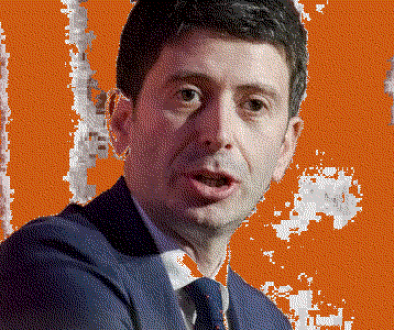International finance leaders simulate a global financial meltdown. We need to worry?

Translation of the article by Michael Nevradakis, Ph.D and Independent Journalist from Athens, appeared in https://childrenshealthdefense.org/defender/leaders-war-game-exercise-global-financial-collapse/
Senior officials and international banking organizations met in December 2022 by a “war game” that simulated the collapse of the global financial system. The thing he remembered “Event 201”, the simulation exercise of a Coronavirus pandemic which ? was fatally followed shortly thereafter by the global arrival of COVID-19.
The simulation called “Collective strength” AND ? held by 9 DECEMBER 2021 at the Israeli Ministry of Finance in Jerusalem ed ? term 10 days E.’ was moved to Jerusalem from the Dubai World Expo due to concerns about the Omicron variant.
Israel led a contingent of 10 countries which also included US Treasury officials, Austria, Germany, Italy, Netherlands, Swiss, Thailand and United Arab Emirates.
Representatives of supranational organizations also participated, like the International Monetary Fund (IMF), the World Bank and the Bank for International Settlements (to).
Described as a “war game” simulated, the exercise sought to model the response to various hypothetical large-scale cyberattacks on the global financial system, also including the leakage of sensitive financial data in the “Dark Web”, hackers targeting the global exchange system, and the subsequent rush to banks and chaos in the financial market fueled by “fake news”.
The main theme of “Collective strength” non ? It seemed like a simulation of such cyber attacks, MA, as the name of the initiative implies, strengthening global cooperation in the financial sector regarding cyber security.
As reported by Reuters, the simulation participants discussed multilateral responses to a hypothetical global financial crisis.
The proposed policy solutions included grace periods for debt repayment, SWAP / REPO agreements, coordinated bank suspensions and coordinated cancellation from major currencies.
The idea of a simulated cancellation from the major currencies has raised some doubts? because of its timing because? the same day the participants gathered to launch “Collective Strength” There were reports that the Biden administration was considering removing Russia from the global electronic payment messaging system known as SWIFT, abbreviation of Society for Worldwide Interbank Financial Telecommunication. This measure would be part of a package of economic sanctions that the United States would apply against Russia if it attacks Ukraine.
Pu? make it lift even more? the eyebrows the list of participants in the simulation “Collective strength”, the IMF and the World Bank participated, and indirectly, he World Economic Forum (WEF).
Recall that to manage the simulation “Event 201” in October 2019 ? It was the WEF, together with the Bill & Melinda Gates Foundation e alla Johns Hopkins Bloomberg School of Public Health.
As previously reported by The Defender, the WEF also supported the development of financial instruments, such as credit and debit cards, that they would plot “personal carbon shares” on an individual basis.
A report released in November 2020 dalla Carnegie Endowment for International Peace, in collaboration with the WEF, provided an overview of the type of scenario that ? been simulated as part of “Collective Strength”.
The authors of the report, Tim Maurer e Arthur Nelson, they described a world whose financial system is suffering “an unprecedented digital transformation ? accelerated by the coronavirus pandemic” So “IT security ? PI? important than ever”.
Describing the protection of the global financial system as one “organizational challenge”, the report highlighted that there is no? a clear global actor charged with protecting the global financial system or its digital infrastructure, Well yes ? gone so far as to describe a “disconnection between finance, national security and communities? diplomatic”.
Solutions identified by Maurer and Nelson include:
- the need? of “greater clarity” regarding roles and responsibilities?
- Strengthen international cooperation
- Reduce fragmentation and increase”internationalization” between financial institutions “siloed”.
- Develop a model that can then be used in unspecified terms “Others” sectors.
But they did not indicate which ones “Others” sectors.
This series of recommendations ? been classified by the authors in their report below “Digital transformation: Safeguard financial inclusion”.
One of these recommendations reads as follows: “The G20 should highlight that cybersecurity must be engineered into the technologies used to promote financial inclusion from the outset, rather than being included as an afterthought”.
The technology that ? “used to advance financial inclusion from the start” it would seem to include “health passports” digital e “digital wallets” Accompanying.
It also appears to be aligned with the United Nations Sustainable Development Goals – in particular, the target 16.9, requesting the provision of an identity? digital legal for everyone, including infants, by 2030.
the target 16.9 also brings to mind the insistence of the European Union that its vaccine passport, the so-called “green pass”, that ? used in numerous European countries to prevent the unvaccinated and those with immunity? natural to enter all types of public and private spaces, protects the privacy of individuals.
In a further link between two distinct issues – the security of the global financial system and public health – the GAVI Vaccine Alliance asked “innovations that leverage new technologies to modernize the process of identifying and registering children who are older? need for life-saving vaccines”.
However, the use of these technologies would not stop at the registration of childhood vaccinations. GAVI described the potential uses of these “new technologies” as comprising “access to other services”, including i “financial services” broadly defined.
The Carnegie Endowment executive summary authors mirrored their proposals in a spring article 2021 which appears on the IMF website, even if the matters of “financial inclusion” they are left out.
While the two authors of the Carnegie report, and the participants in the initiative “Collective Strength”, underline the need? that the financial system and its digital data are better protected, it remains unclear how a continuing transformation towards a fully digital and cloud-based environment can really be considered “safe”.
If you consider, for example, the following observation by Micha Weis, financial cyber manager at the Israeli ministry of finance, in reference to “Collective Strength”: “[A]ttackers are 10 steps forward to the defender”.
Such words do not offer much comfort to those who are already? wary of “FinTech”, or the growing closeness between “Big Tech” E “Big Finance”.
Similarly, yet another “simulation” of a large-scale and destructive global catastrophe, for some, reporter? to memory the”Event 201″ e ci? no ? followed – sadly described the 20 March 2020, by then US Secretary of State Mike Pompeo as a “live exercise”.
Translator's Note (Loris Palmerini): all the simulated scenario comes true? us? that ? was clearly indicated as an objective to be achieved by the participants themselves who are mostly in the organization www.id2020.org, i.e. the scenario ? the realization of their declared goals highlighted by me in the conference of 24 April 2020 entitled “Covid-19: pandemic or attack on freedom?”






